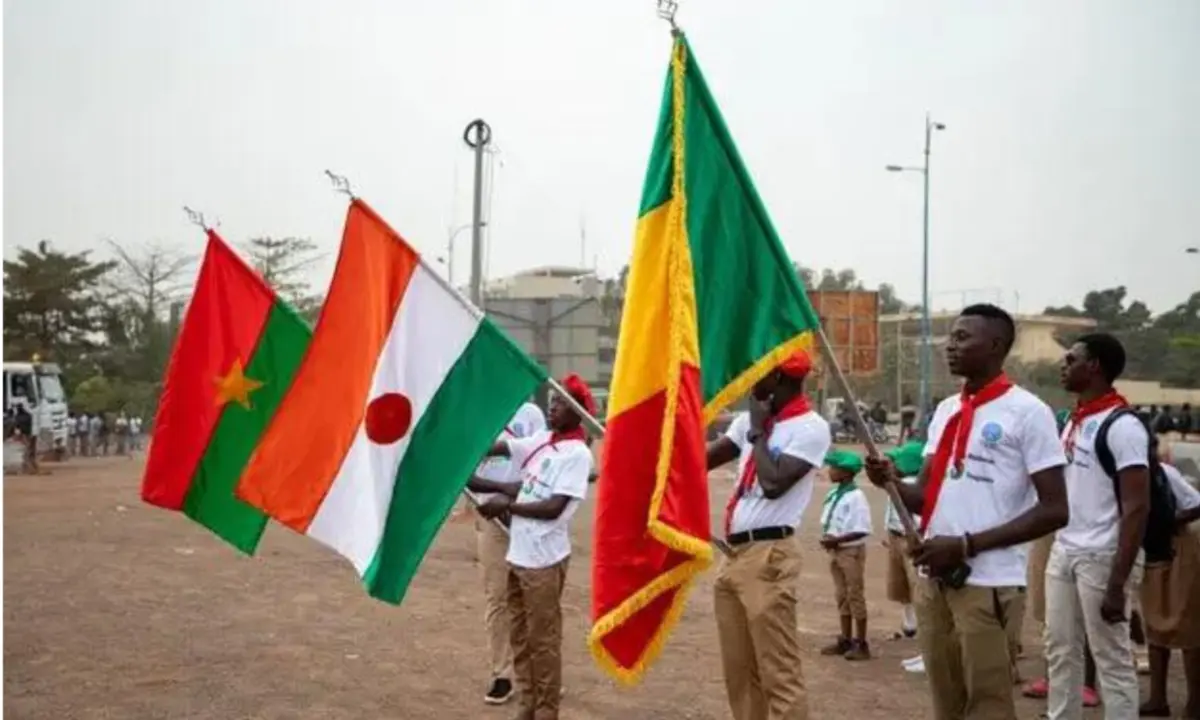On August 16, the Alliance of Sahel States (AES) celebrated its first anniversary, marking a pivotal moment in the political, economic, and security evolution of the region.
Formed by Mali, Burkina Faso, and Niger, the AES was born out of a shared need to address common challenges and affirm the independence of its member nations. In its first year, the Alliance has made notable strides toward self-reliance, while setting ambitious goals for the future.
A Step Toward True Independence
One of the most significant achievements of the AES is its move toward genuine independence from former colonial powers. The withdrawal of French and American military forces from the region has been a symbolic and strategic victory for the Alliance. This decisive action underlines the AES’s commitment to breaking free from foreign influence, which has long dominated the region’s politics and security. Colonel Assimi Goïta, a key figure in the AES, frequently emphasized the importance of this newfound political and economic independence, heralding it as a victory for national sovereignty.
This pursuit of autonomy is also reflected in the AES’s departure from the Economic Community of West African States (ECOWAS). By distancing itself from an organization often viewed as serving external interests, the AES has asserted its desire for greater freedom in decision-making.
Strengthening Security and Sovereignty
In terms of security, the AES has made headway in its fight against terrorism, one of the region’s most persistent threats. The coordinated efforts of the Malian, Burkinabe, and Nigerien armed forces have resulted in successful joint operations against jihadist groups destabilizing the Sahel. Although notable victories have been achieved, the fight against terrorism remains ongoing.
Economic Sovereignty and Prospects
On the economic front, the AES has undertaken significant reforms aimed at enhancing financial sovereignty. One of the most promising developments is the proposal to establish a common central bank and introduce a new currency, replacing the CFA franc, a colonial legacy. This initiative reflects the AES’s determination to gain greater control over its economies and reduce reliance on external financial systems.
Additionally, the Alliance is exploring the possibility of creating a unified banking institution to further consolidate financial autonomy. The upcoming launch of a biometric passport for AES citizens highlights another milestone in regional integration, promoting mobility and strengthening the bonds between member states.
Diversifying Partnerships
The AES’s efforts to diversify its international partnerships have been another crucial step in reinforcing its economic and political independence. By reducing reliance on traditional Western partners and seeking new alliances, particularly with countries in Asia and the Middle East, the AES is positioning itself as a more self-sufficient and globally connected player.
Challenges Ahead
While the AES has made significant progress, the road ahead remains fraught with challenges. Achieving complete economic and political sovereignty will require sustained commitment, strong leadership, and careful management of both internal and external pressures. The Alliance’s goals of rejecting the CFA franc and establishing a confederation are ambitious but will necessitate a cohesive strategy and the political will to bring these visions to fruition.
The coming years will be critical in determining the AES’s long-term success. Balancing national sovereignty with regional cooperation, while maintaining stability in the face of external pressures, will be key factors in shaping the future of the Alliance. With its first year laying the foundation for profound transformations, the AES is poised to become a major force in the Sahel, driven by its commitment to self-reliance and the well-being of its people.
In just one year, the Alliance of Sahel States has made considerable strides toward political, security, and economic transformation. While challenges remain, particularly in terms of security, the AES stands as a beacon of hope for the region, determined to defend its interests and chart its own path forward. The success of the Alliance will depend on its ability to balance national sovereignty with international cooperation, all while meeting the developmental and security needs of its populations.
Achievements, challenges ahead as Alliance of Sahel States marks first anniversary



